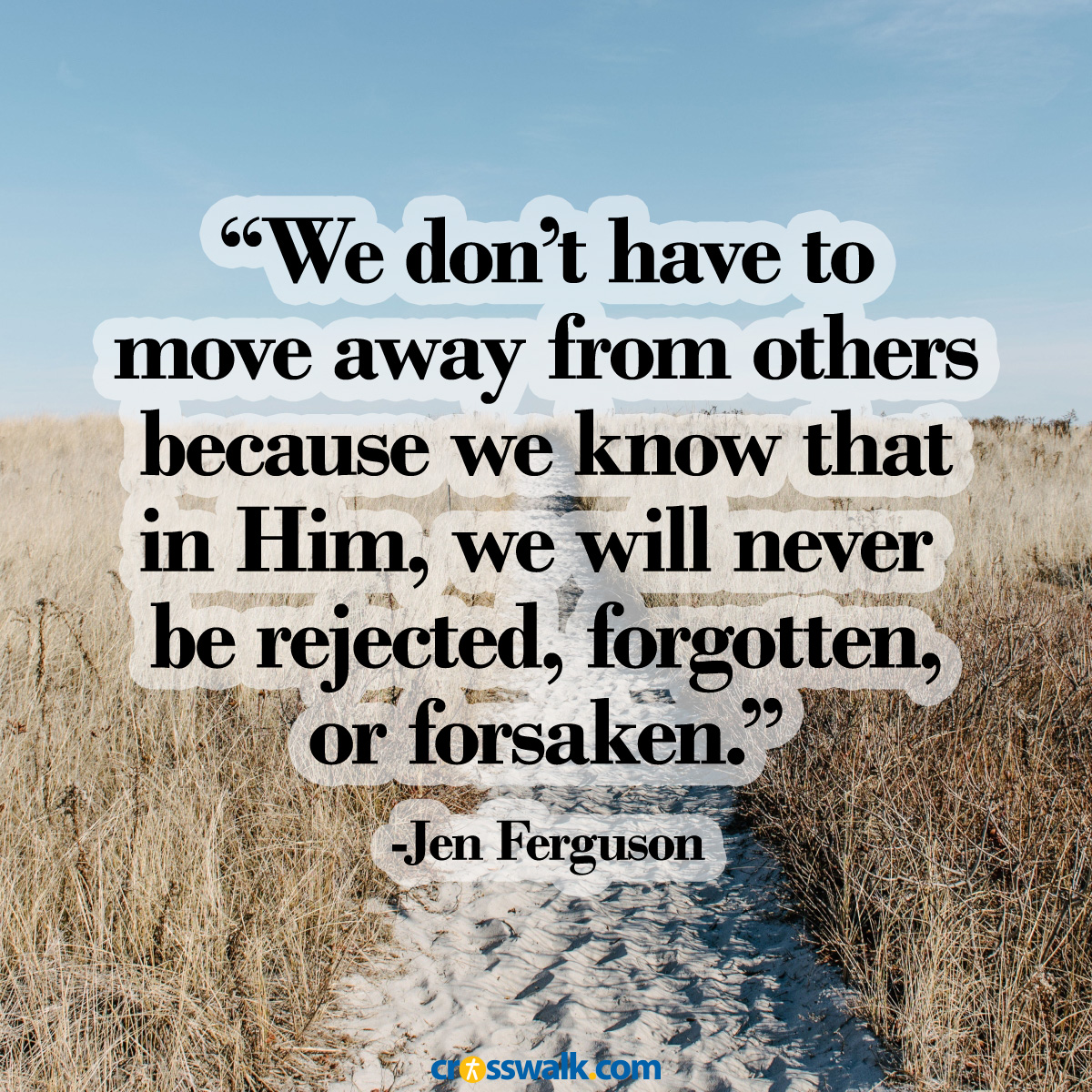How Childhood Shapes Your Relationship - Crosswalk Couples Devotional - January 24
How Childhood Shapes Your Relationship
By Jen Ferguson
“I have been crucified with Christ and I no longer live, but Christ lives in me. The life I now live in the body, I live by faith in the Son of God, who loved me and gave himself for me.” Galatians 2:20, NIV
For the longest time in our marriage, I often felt like a little puppy dog in our marriage. I would yip and yap and tug much like puppies do as they try to vie for their owner’s attention. I felt as though I was continually chasing after Craig, pleading “pay attention to me!” But every foot I got closer, the more he moved away.
To be honest, I was not as innocent as a cute little puppy dog. While my need for his love and attention was valid (and still is), it had also reached unhealthy levels. I continued to move towards Craig because I was dependent on him for my security and self-worth. Enter the childhood past affecting the present marriage.
Growing up, my parent’s relationship was highly unstable, which definitely affected my sense of security and stability. I was desperate to have my new family become the opposite of my childhood, but did not have the tools to create that environment in a healthy way. Unequipped, I simply tried to force it, manufacture it, control it to soothe my inner heartache.
Craig grew up in a much more stable home, but as a middle child often felt as though he wasn’t seen. So to minimize rejection, he learned to be self-reliant, independent, and when things got hard, he moved away from others, isolating himself.
Can you imagine the puppy dog scene now?
Many of us have childhood wounds that shape our style of relating. Karen Horney’s research says that each of us adopts a style that helps us survive and overcome the pain of our childhood. People generally either move towards (me), move away (Craig), or move against.
Move towards people want to control the relationship for their own sense of security and self-worth. Move away people want to detach themselves from relationships to protect themselves from more pain and disappointment. Move against people try to dominate and rule over relationships, sometimes coming across as a bully or tyrant.
The styles of relating may help us avoid pain for a while, but since God created us for connection and intimacy, they will soon simply cause us to wilt away. We certainly can try to fight against old behavior patterns and create new habits, but ultimately, if we don’t allow God into the places of childhood pain, we will simply begin to adopt the unhealthy patterns of other styles or regress back into our own. Behavior modification never heals heart wounds.
But Jesus does.
The more we get to know Him, the more we grow to trust Him. The more we grow to trust Him, the more we can trust others. This is not because He will protect us from every hurt that will inevitably happen in our relationships, but because we have a clear picture of who we are in Him and what He has done for us. We recognize the power of redemption possible in our lives. We accept the grace our own behavior requires, and we develop a deep compassion for others as they, too, work on allowing God in to heal, redeem, and make whole.
We don’t have to move towards others in order to fill our need for security and self-worth because we have found security in our relationship with Christ and our identity rests in Him.
We don’t have to move away from others because we know that in Him, we will never be rejected, forgotten, or forsaken.

We don’t have to move against others because we know that the dominion of others is not required for us to be safe and respected. We know that we can rely on the Lord for our protection.
Identifying our own styles of relating greatly helped Craig and I heal as individuals, but also helped our marriage. With Christ’s help, we could help each other recognize old behavior patterns, speak truth louder than our childhood lies, and remind each other of the powerful life we now have in Christ.
Spend some time talking with your spouse this week about your style of relating. Does your spouse agree? What about his/her style of relating? While talking about your childhood wounds can be painful, there is nothing like having your partner be a part of the life change that Jesus wants for you and your marriage.
Related Resource: Holiday Affection Dip: Simple Strategies to Protect Your Affection
It's the most wonderful time of the year—unless your relationship is in trouble. In today's episode of Rebuilding Us, we're taking an honest look at how affection can ebb and flow in your relationship—especially during busy seasons like the holidays. Whether you consider yourself naturally affectionate or not, you'll learn why intentionally nurturing closeness matters for every couple. We're discussing real-life reasons affection can dip, ranging from plain old busyness and fatigue to unresolved wounds and letting family drama in. Plus, you'll hear practical tips to help your relationship not only avoid these "affection dips," but actually grow stronger and more connected in your marriage or relationship—no matter what time of year it is. If this episode helps your marriage, be sure to subscribe to The Rebuilding Us Podcast on Apple or Spotify so you never miss an episode!








